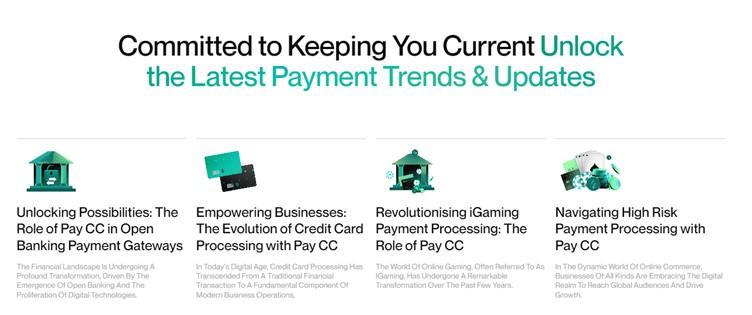In today’s igaming realm, the intricate economies within online games have evolved significantly. These game developers have meticulously crafted systems that reward players for their dedication while strategically capitalizing on in-game advancements. To ensure seamless operation, the gaming industry seeks a dependable igaming payment gateway capable of effortlessly handling diverse payment modes, accommodating the varying needs of its user base.
Online gaming enterprises commonly seek payment gateways that effortlessly facilitate card transactions alongside alternative methods like net banking, e-wallets and more. Moreover, the surge in popularity of cryptocurrencies prompts many players to opt for this mode of payment. Simplicity remains a top priority for players, who prefer a straightforward checkout process to swiftly finalize their payments. Once this process concludes, the payment swiftly lands into the gaming merchant account, all orchestrated by the igaming payment processing platform within mere seconds.
Utilizing an igaming payment gateway can streamlines the process for players to acquire subscriptions and in game items effortlessly, all at the click of a button. Both players and online casino stand to gain numerous advantages by adopting a reputable igaming payment gateway for their online gaming ventures. This system facilitates global expansion, enabling businesses to extend their reach worldwide while accommodating transactions in multiple currencies. Moreover, there exists a multitude of additional benefits associated with employing a gaming payment gateway, which we’ll delve into shortly.

Are igaming Payment Processing Gateways the Same as Regular Payment Gateways?
Distinguishing between online gaming payment gateways and regular ones often raises questions among newcomers. It’s important to note that while both serve as payment gateways, they operate differently. Despite this, their fundamental working mechanisms remain the same.Integrating a traditional payment gateway into a gaming business can pose challenges. Traditional payment processors typically decline applications for opening a gaming merchant account. To navigate this, engaging a specialized service provider with expertise in the gaming industry becomes essential.
The gaming industry tends to steer clear of traditional payment gateways due to certain industry-specific considerations. Many banks and financial institutions view gaming businesses as high-risk due to several factors, including:
- High turnover rates
- Increased potential for money laundering and fraudulent activities
- Elevated rates of refunds and chargebacks, which are more prevalent in the gaming sector
These factors contribute to the reluctance of traditional payment gateways to engage with gaming businesses in different parts of the globe.
Understanding how an igaming Payment Gateway Operates
In the modern online casino scene, the process of handling payments within online gaming industries has diversified significantly. These methods prioritize convenience, enabling players to effortlessly execute payments with a single click, thereby contributing to enhanced profitability for merchants.Today’s gaming landscape is full off diverse commercial offerings embedded within the gaming experience, enticing players with a variety of products. Some gaming platforms entice players with the option to purchase coins, while others provide enticing skins and additional in-game perks. P
Players engage with these offerings using their smartphones, desktops, or laptops, immersing themselves in these in-game products.Once players select their desired product and add it to their virtual shopping cart, the subsequent step involves navigating through the checkout process. This pivotal stage facilitates the actual transaction, allowing players to proceed with their purchase within the game environment.

Important Features provided by igaming Payment Processing Services
Before committing to a specific igaming payment gateway for your online casino needs, it’s crucial to assess whether the chosen service offers essential features. If these elements are lacking, it might signal that the selected payment gateway isn’t optimal for your needs.
Catering to Different Payment Methods
Most players demand multiple payment options from igaming merchants. While some customers may favor specific payment methods, a comprehensive gaming payment gateway should provide a spectrum of choices. This includes popular options such as credit cards but also extends to digital wallets, crypto along with other popular payment methods. Offering a range of payment modes ensures that players have the flexibility to utilize their preferred method, reducing friction in the payment process.
Accepting Different Currencies
Given the global reach of gaming platforms with millions of players, adaptability to various currencies is imperative. A gaming merchant should seamlessly cater to an international audience by accepting diverse currencies. This ensures that customers can comfortably engage in transactions using their preferred currency, enhancing convenience and accessibility.
Straightforward Integration is a Must
Simplicity and integration ease are crucial factors for a gaming payment gateway. A seamless checkout experience is paramount for customers, hence opting for a high risk payment processing service for igaming that is user-friendly for merchants and offers an uncomplicated checkout process is highly advisable.
In essence, an optimal gaming payment gateway excels in providing multi-currency support and a variety of payment modes. These features accommodate the diverse preferences of gamers, enhancing their overall online casino experience while streamlining transactions for the merchant.







